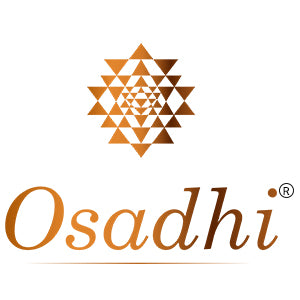Free Shipping on all orders in India | Certified Vegan Skin Care
Free Shipping on all orders in India | Certified Vegan Skin Care
January 01, 2021
Today, awareness is growing, as to how our ancestors used their wisdom to use botanical's/plants, to maintain healthy skin and hair, through external application. More and more customers, particularly the millennial's are consciously looking for green alternatives in place of chemical laden cosmetic products. The general acceptability of ancient medicine like Ayurveda, Unani, Homeopathy and alternative therapies has increased. Customers no longer expect overnight results and realize that beauty is a commitment and not a miracle.
The skin care industry has shown a shift in customer preferences towards natural yet scientific products. Do you plan to go green in your beauty regime? Go Natural? Go Organic? Go Cruelty and chemical free? Are the skincare products you use as natural as they claim to be?
NATURAL
The term natural is very broad and cloudy, because, claims like organic, all - natural or no harmful chemicals are not regulated by the governments of most countries. Having a look at the labels can also be misleading at times, as brands opt to mention only the natural inputs, for targeting customers who are aiming to live a greener and healthier lifestyle. Brands smartly market their brands as natural, whereas they may be actually packed with synthetic ingredients.
So, how does one find out the real facts?
It is by reading the ingredient list on the label. A complete ingredient list, which is normally in decreasing order of the weight of the ingredient, is given on the label. this helps people who have been diagnosed with allergies; so that they can avoid the product with the ingredients that they are allergic to.
Most cosmetic companies claiming to be natural, promote their products with certification claims in their labelling or advertising. Some certification bodies worldwide, that provide cosmetic certification are - The leaping bunny (Go cruelty free), PETA, Ecocert, USDA Organic, Vegan, Natural Products association, BDIH, Australian certified organic, Fair trade, Cosmos.
However, none of these standards or guidelines are backed by law.
ORGANIC
Organic only means that ingredients are organically grown and the farmers have not used chemical fertilizers and pesticides to increase the yield. Recently we have witnessed great enthusiasm around the organic movement in India. In our quest to live a healthier life and support small farmers we often opt for products branded ‘organic’. The truth is that most small farmers cannot afford to get organic certification and validation as even the soil needs to be tested to meet the requirements of being free from the list of prohibited substances.
Some products that can be genuinely organic are (a) Face Ubtans, which are herbal powders made by mixing plant parts, organic earth and wild herbs (b) cold pressed oils (c) serums made from oils and essential oils (d) balms and body butters (e) Dead Sea bath salts/ Himalayan pink salts are natural, as they come from either the sea or the mountains.
In order to ascertain that the product is genuinely organic, one should look for the symbols of certification bodies like: The USDA organic, COSMOS standard, and ECOCERT. This would imply that the products contain 95% of organically sourced ingredients. (The percent of organic content can vary across countries).
CRUELTY-FREE
Have you ever noticed a ‘Leaping Bunny’ certification on products and advertisement? It means that none of the ingredients have been tested on animals. For brands that are natural it is tough to imagine why they would catch a rabbit and put oil on it and observe the way the rabbit’s skin reacts. Experimenting on human volunteers would be easier to substantiate ingredient safety.
Synthetic raw materials used in cosmetics may have been tested on animals when they were initially introduced to ascertain ingredient safety. Europe has banned animal testing on all cosmetics sold in their region.
The unrestricted use of these phrases by cosmetic companies is possible because there are no legal or regulatory bodies that governs these things.
VEGAN
A product which is labelled ‘vegan’ contains either no animal products or animal by-products like beeswax or milk. But it could still have a lot of synthetic chemicals in it.
What is happening today is pure green-washing. You take a cosmetic product, dress it up with aesthetic packaging, add some extracts and market it as something natural.
Comments will be approved before showing up.
March 10, 2021
